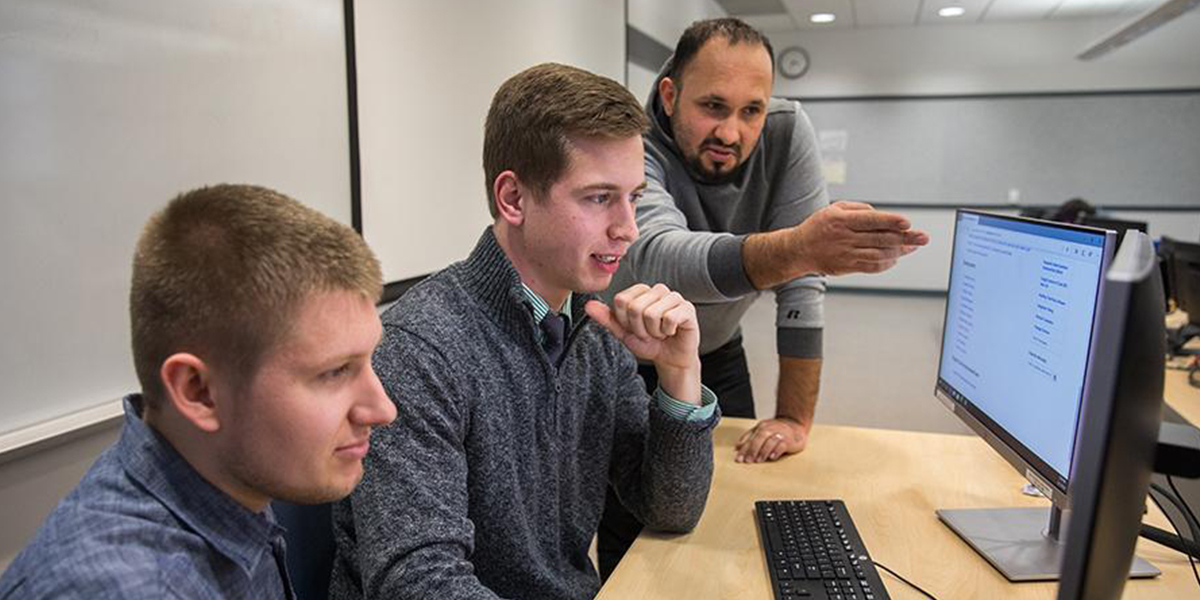
Daniel Zellmer, a junior software engineering major at the University of Wisconsin-Platteville, has been researching the topic of emotion mining on Twitter. The Green Bay, Wisconsin native will present his research at the 16th annual Research in the Rotunda on April 17 in Madison, Wisconsin.
Zellmer is being mentored by Dr. Suboh Alkhushayni, assistant professor of computer science and software engineering. They are classifying the tweets into one of seven emotions: anger, sadness, guilt, joy, surprise, fear and disgust. “We are trying to narrow it down to just one of these emotions per tweet. It may not be the only emotion, but to find the strongest emotion from that tweet,” said Zellmer. “We took certain hashtags and certain buzz words that correspond to each of our seven emotions and we use those words as a filtering criteria to establish a baseline for comparison.”
The researchers are trying to use machine learning classification, teaching computers to recognize how people are feeling based on posts they make on social media. “We focus on Twitter because the length of a tweet is very short, so people are forced to communicate their ideas succinctly in this limited space,” said Zellmer.
They receive random samplings from Twitter, all coming from the United States. “What we’re doing is taking a peek into the daily Twitter stream,” said Zellmer. “This streaming gives us hundreds of thousands of tweets from around the country to collect and analyze. Our hope for the near future is to connect our software to this stream so we can get daily nationwide updates in real time.”
The intention behind the research project is to address mental health concerns, according to Zellmer. “We can get ideas not only on how people are responding to events in certain regions, but what are some areas that we see higher concentrations of people showing more of our negative emotions,” he said. “We want to be able to pinpoint areas of people showing signs of these emotions to improve nationwide mental health and prevent instances of suicidal actions or acts of rage. We want to be able to pinpoint those locations and provide assistance.”
Zellmer said he’s excited to present his materials to undergraduate students from across the UW System, legislators, state leaders, alumni and the public. He’s especially looking forward to answering their questions. “The best thing for a research project is knowing where you want to go with it,” he said. “By having these people ask questions and take different angles, it gives me a better understanding of the scope of this project and what I can do with it over time.”
As Zellmer looks ahead to the future he hopes to team-up with different disciplines including psychology, neuroscience and geography. “A huge component of this project is going to be creating a real-time mapping of emotions across the globe. With help from geographers who are familiar with geographic software products I hope to create a doppler-like emotion radar,” he said. “I want to take this research through graduate school and hopefully go to the professional sector making applications of this research.”